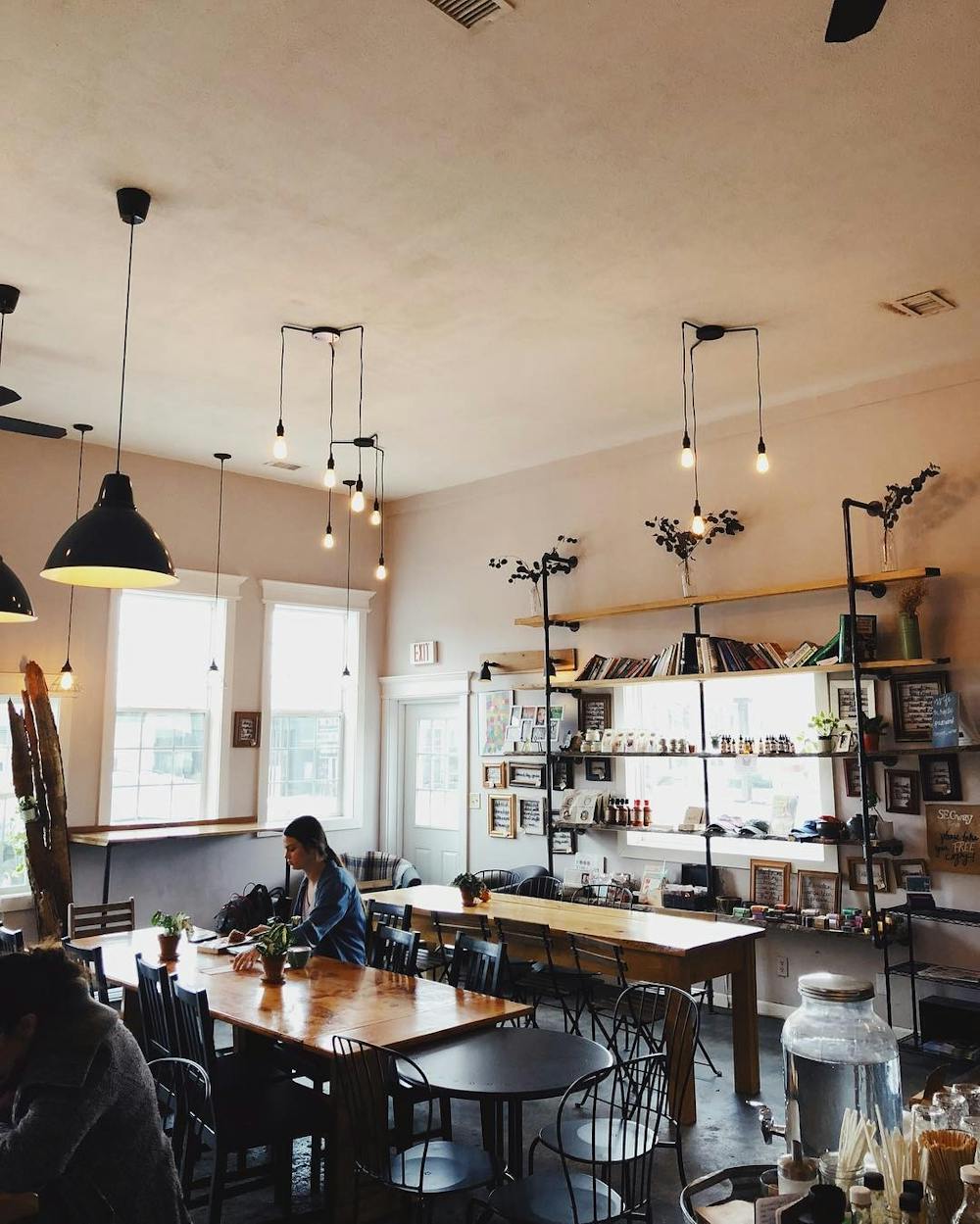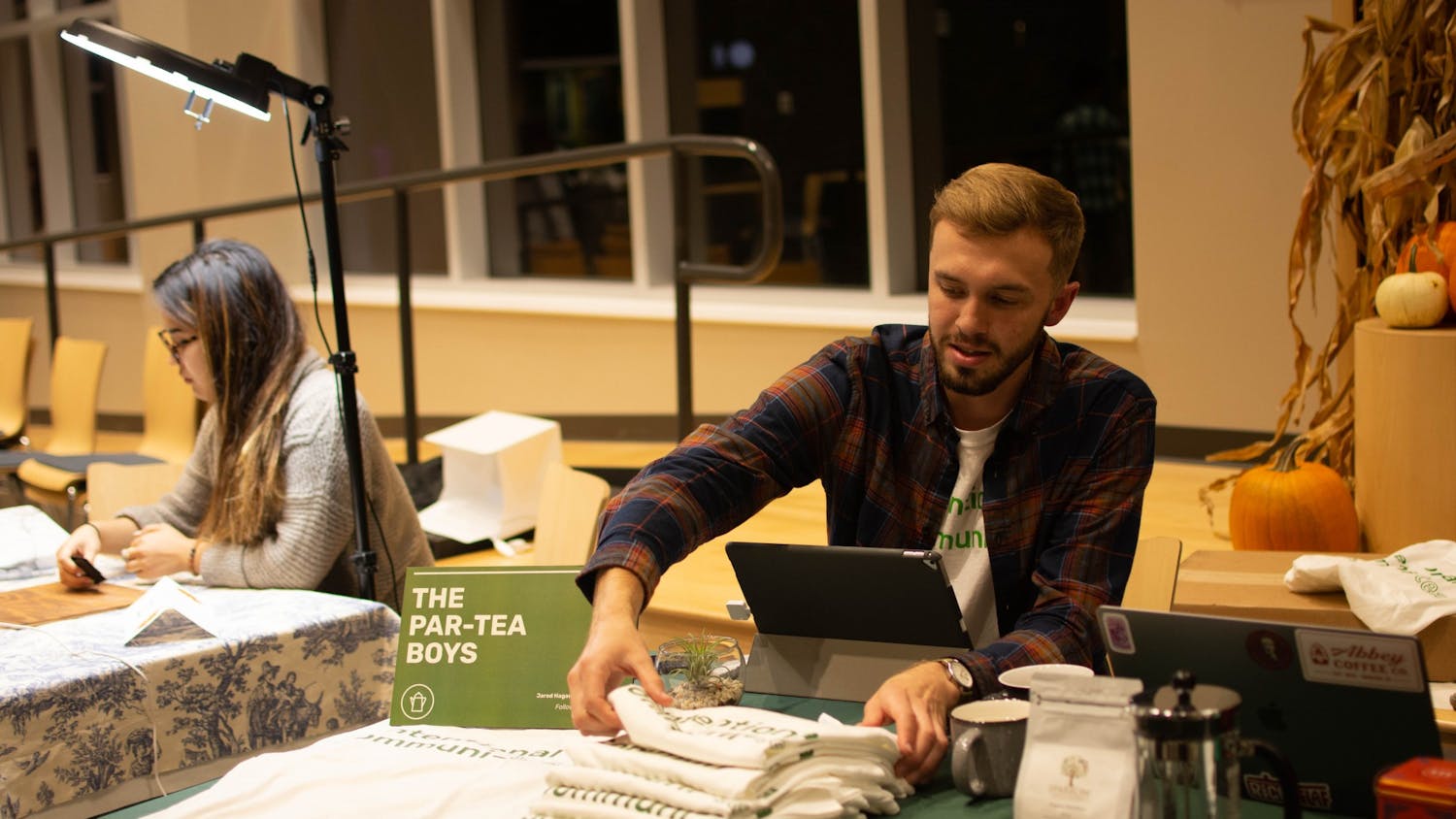While most businesses have been considered non-essential during stay-at-home, restaurants have been given a special allowance to keep doors open.
Even so, restaurants have still been uniquely hurt by the coronavirus pandemic.
The National Restaurant Association reports that the industry as a whole has lost 3 million jobs and $25 billion in sales since March 1. They have estimated that the industry will go on to lose $225 billion in the next three months.
This change often hits hardest with independently-owned restaurants, which makes up about two-thirds of American dining, according to the New York Times.
According to manager Jamie Hughes, The Bridge has felt this severely, with both the loss of community business and seasonal student business.
“The first week, people really came out and supported us,” Hughes said. “Last week, we were down about 40%. This week we’re looking at around 70% down in sales . . . I’ve seen some scary times in the five years that I’ve worked here, but this is the worst I’ve seen.”
While many dining areas across the nation are closed, many restaurants have shifted to offer drive-thru or takeout food.
Hughes said The Bridge has adapted their takeout to completely eliminate contact. Orders are taken by phone, then meals and coffee are prepared safely with gloves and placed for pick-up by a propped door.
“In 1965 when Ivanhoe’s opened we had no dining rooms,” Ivanhoe’s wrote in a March 17 Facebook post following Indiana Gov. Eric Holcomb’s decision to close dining areas. “You would order and eat in your car.”
Ivanhoe’s continues to offer takeout through their regular hours. Greek’s Pizzeria is also continuing business through carryout and delivery.
The Centers for Disease Control and Prevention (CDC) has continually affirmed that transmission cannot occur through food.
Dr. Anthony Fauci, director of the National Institute of Allergy and Infectious Diseases, said he continues to support restaurants in an interview with Philip Defranco on March 27. He advised that continual hand-washing, disinfecting of keys and payment cards, and discarding carryout containers will protect customers from transmission.
“It’s important to remember supporting your local restaurants isn’t just ordering takeout one time,” Hughes said. “It’s a commitment. Maybe one week order out from one place, then another the next.”
Restaurants and other small businesses can apply for a loan through the Coronavirus Aid, Relief, and Economic Security (CARES) Act to pay bills and employees, however, Hughes encouraged people to continue small businesses as they are able. She worries that the act includes exclusions which may cause difficulty in getting loans for businesses like The Bridge, which is owned by non-citizens.
While supporting restaurants is encouraged everywhere, Hughes encouraged Taylor students to remember Upland as well, especially since students left campus earlier than expected.
“Buying gift cards is like giving a business a small loan,” Hughes said. “They have the money to use to pay bills now, then you can later use the card to buy items. I would encourage students to consider the amount they would’ve spent at The Bridge this semester, then buy a gift card for that amount.”
Although Ivanhoe’s and Greek’s do not offer e-gift cards, Hughes said it is also helpful to share social media posts. She said by sharing posts, followers who are still in Grant County can be reminded to support that business.
In addition to offering e-gift cards, The Bridge has expanded its care packages for home delivery. Care packages include a personalized note and drink recipe card and a combination of fresh pastries, broad ripple chips and coffee beans dependent on the package size.
“If every one of our regular customers bought one care package at some point, I think we’d be able to make it through this,” Hughes said.
Hughes added that they have added a donate function to their website, as well as set up an emergency Venmo fund in the event that The Bridge would have to lay off any employees. Currently, the café employs 10 people.
Ultimately, Hughes sees supporting restaurants as part of a greater team effort.
“I’ve heard it said before that right now we’re going through a collective trauma,” Hughes said. “It’s a difficult time for everyone. The important thing is to support each other through this. When people support small businesses, we support you by providing some sense of normalcy with our food and coffee.”





